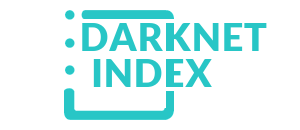The darknet, also known as the dark web, is a concealed section of the internet that's inaccessible via standard search engines. You can only access it using special software, settings, or authorization. This area comprises websites and content that are purposely kept hidden from public view.
Accessing darknet requires using Tor Browser, a special web browser that routes your internet traffic through a global network of relays managed by volunteers. This way, it becomes very difficult to trace which websites you're visiting, and these sites won't know where you are located.
When visiting the dark web, use a secure browser like Tor, do not reveal any of your personal information, and don't open suspicious files or links to stay safe.
The Darknet is often utilized for secure communication, discreet information or file sharing, anonymous research without identity exposure, and occasionally for engaging in illicit activities. It is also recognized for hosting underground black markets(darknet markets), whistleblowing platforms, and discussion boards that champion freedom of speech.
While accessing Darknet Markets themselves is typically not against the law in most places, engaging with illicit goods within them is generally considered a crime. On the other hand, some people might visit Darknet Markets for lawful purposes such as research, journalistic work, or simply to explore online communities. It's essential to know the local laws regarding online activities, and be cautious when using these platforms to avoid any potential issues.
Owners of “Empire Market” Charged in Chicago With Operating $430 Million Dark Web Market
In a recent development, two individuals have been charged in federal court in Chicago for their involvement in operating a dark web marketplace known as "Empire Market." Thomas Pavey, also known as "Dopenugget," and Raheim Hamilton, also known as "Sydney" and "Zero Angel," have been accused of facilitating more than $430 million worth of illegal transactions through the platform.
According to a superseding indictment returned in U.S. District Court, Pavey and Hamilton owned and operated Empire Market from 2018 to 2020. During this time, they oversaw approximately four million transactions between vendors and buyers, involving a variety of illegal goods and services. The charges against them include conspiracy to engage in drug trafficking, computer fraud, access device fraud, counterfeiting, and money laundering, with potential sentences of life in federal prison.
Both Pavey and Hamilton are currently in custody awaiting arraignments in federal court. The indictment was announced by Morris Pasqual, Acting U.S. Attorney for the Northern District of Illinois, along with officials from the FBI, U.S. Postal Inspection Service, and Homeland Security Investigations.
The investigation revealed that prior to operating Empire Market, Pavey and Hamilton had sold counterfeit U.S. currency on another dark web marketplace called AlphaBay. Empire Market, which launched in 2018, allowed thousands of vendors and buyers to access its platform through specialized software, offering a range of illicit goods and services including drugs, counterfeit items, and stolen credit card information.
During the probe, law enforcement seized cryptocurrency worth $75 million, as well as cash and precious metals. It is important to note that an indictment does not indicate guilt, and the defendants are entitled to a fair trial where the government must prove their guilt beyond a reasonable doubt.
Here is a summary of all THREE counts against them
Count One: AlphaBay was an illegal online marketplace where users could hide their identities and sell goods/services. Pavey and Hamilton sold counterfeit currency on AlphaBay at a discount to customers, like Customer 1, 2, and 3. They endorsed each other's fake money and communicated with customers, with Hamilton making 2,700 sales.
Count Two: Pavey and Hamilton ran Empire Market on the dark web, allowing for the buying and selling of illegal products, including drugs. They facilitated millions of transactions, earning over $430 million. They also conspired to distribute controlled substances like heroin and cocaine.
Count Three: Pavey and Hamilton conspired with others to possess and sell stolen credit card information and account login credentials on Empire Market. They made money from sales and tried to hide the conspiracy. Multiple vendors sold stolen information on Empire Market, leading to charges under the United States Code.
